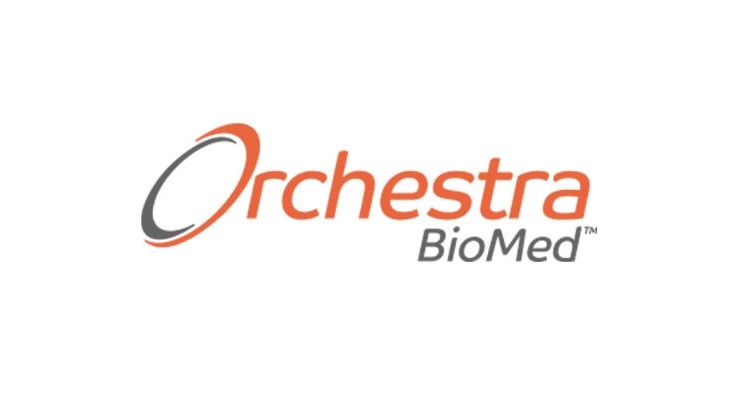World
Orchestra BioMed Reveals Promising Blood Pressure Therapy Data

Orchestra BioMed Holdings, Inc. has published new data in the journal JACC: Clinical Electrophysiology, highlighting the effectiveness of its innovative atrioventricular interval modulation (AVIM) therapy in lowering blood pressure for patients with uncontrolled hypertension who require pacemakers. The findings indicate significant improvements in hemodynamic performance, marking a potential shift in treatment options for this patient population.
Data Highlights and Clinical Implications
The results stem from both acute and chronic pressure-volume loop studies, which are widely acknowledged as the standard for evaluating cardiac function. In these studies, AVIM therapy produced statistically significant reductions in systolic blood pressure, intra-cardiac volumes, total peripheral resistance, and stroke work, all while maintaining stroke volume and heart contractility.
In a focused investigation involving 16 patients undergoing invasive procedures and a larger group of 32 patients from the MODERATO II trial, the AVIM therapy demonstrated an average reduction in systolic blood pressure of 17.1 mmHg when using right ventricular pacing and 19.2 mmHg with conduction system pacing. In contrast, standard pacing achieved only a modest reduction of 1.7 mmHg.
Long-term treatment with AVIM therapy revealed sustained decreases in both blood pressure and ventricular volumes, suggesting a positive remodeling effect on the heart muscle. This promising data could pave the way for improved patient outcomes in a demographic that often experiences both hypertension and the need for pacing devices.
Expert Endorsement and Future Prospects
Dr. Daniel Burkhoff, director of heart failure and hemodynamics research at the Cardiovascular Research Foundation, noted the significance of the pressure-volume loop analysis, stating, “These results provide powerful insights on the impact of AVIM therapy to both decrease blood pressure and favorably impact ventricular end-diastolic volume without compromising cardiac output or increasing workload.”
Yuval Mika, executive vice president of bioelectronic therapies at Orchestra BioMed, emphasized that the findings highlight AVIM’s potential to “reshape the standard of care for higher-risk patients with uncontrolled hypertension in the pacemaker population and beyond.” This assertion reflects the growing recognition of AVIM therapy’s benefits within the clinical community.
Currently, AVIM therapy holds FDA Breakthrough Device Designation and is under evaluation in the pivotal global BACKBEAT study, conducted in partnership with Medtronic. With more than 750,000 patients receiving pacemakers worldwide each year, the therapy could potentially benefit over 7.7 million patients in the United States alone.
The publication of these peer-reviewed results reinforces the evidence supporting AVIM therapy as Orchestra BioMed and Medtronic work towards regulatory approvals and eventual commercialization. As the healthcare landscape continues to evolve, this innovative approach may offer new hope for patients grappling with both hypertension and the need for cardiac pacing.
-

 Lifestyle5 months ago
Lifestyle5 months agoLibraries Challenge Rising E-Book Costs Amid Growing Demand
-

 Sports4 months ago
Sports4 months agoTyreek Hill Responds to Tua Tagovailoa’s Comments on Team Dynamics
-

 Sports4 months ago
Sports4 months agoLiverpool Secures Agreement to Sign Young Striker Will Wright
-

 Lifestyle4 months ago
Lifestyle4 months agoSave Your Split Tomatoes: Expert Tips for Gardeners
-

 Lifestyle4 months ago
Lifestyle4 months agoPrincess Beatrice’s Daughter Athena Joins Siblings at London Parade
-

 Science4 months ago
Science4 months agoSan Francisco Hosts Unique Contest to Identify “Performative Males”
-

 World4 months ago
World4 months agoWinter Storms Lash New South Wales with Snow, Flood Risks
-

 Science5 months ago
Science5 months agoTrump Administration Moves to Repeal Key Climate Regulation
-

 Business5 months ago
Business5 months agoSoFi Technologies Shares Slip 2% Following Insider Stock Sale
-

 Science5 months ago
Science5 months agoNew Tool Reveals Link Between Horse Coat Condition and Parasites
-

 Sports5 months ago
Sports5 months agoElon Musk Sculpture Travels From Utah to Yosemite National Park
-

 Science5 months ago
Science5 months agoNew Study Confirms Humans Transported Stonehenge Bluestones









